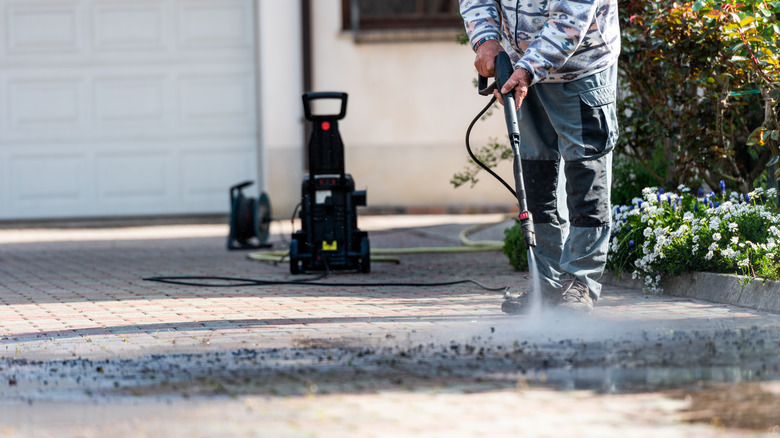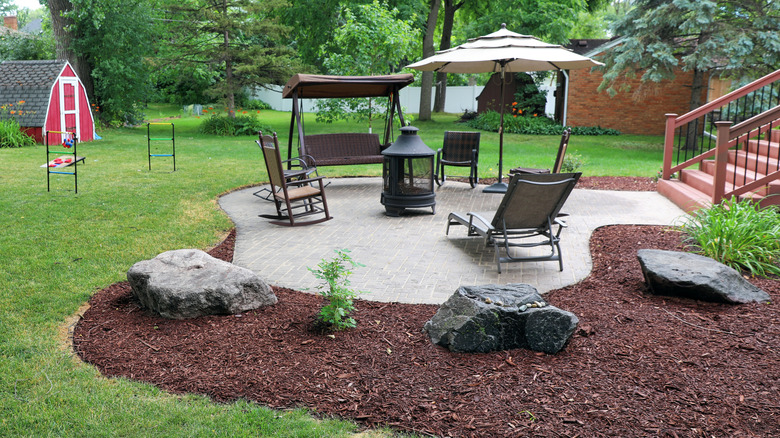The Simple Tip That Prevents Heavy Rain From Washing Garden Soil Onto Your Patio
Landscape edging is great for preventing garden soil from spilling over onto your patio, pathways, or lawn, but it's becoming more popular to take alternative and creative approaches. In one recent TikTok post, @thelawndad advises ditching artificial lawn edges and borders for a more natural approach to landscaping, while another TikTok user, @brandontgentry takes it a step further by using his lawn edges to grow a flower bed. A potential problem with maintaining these types of edges, however, is that soil may run off onto your patio during times of heavy winds and rain. One key way to prevent this is to use mulch to keep the soil in place.
Mulch is a combination of natural materials like leaves, grass, wood chips, and straw or other natural materials that are added to soil to give it more form and structure. The increased porosity helps the soil retain moisture, and as the mulch breaks down, it turns into nutrients that enrich the soil. Mulching also prevents weeds from growing, regulates the temperature, and improves the overall appearance of the flower beds.
Use mulch to keep soil in place
In addition to holding soil in place, mulch does wonders for the aesthetics of your garden. It comes in different color and texture options, offering a much more organized and attractive look to match your plants, the landscaping, and other elements on your patio. Fine or coarse mulch is available, while red, brown, and black are the usual color options. Heavier types of mulch, like bark nuggets, are ideal for windy locations since you can rely on them to stay in place. Mulch is especially helpful if your garden bed has no edges because it will help to keep the floor clear from eroded soil.
To achieve the best results, mulching needs to be done correctly. Two of the main things to avoid are applying too much and not anchoring it so it stays in place. One useful tip is to dig a trench around the bed to allow for a deep layer of mulch that finishes level with your patio or lawn, especially if the ground is sloped. Gardening mulch needs to be thick enough to suppress weeds and keep the soil sturdy without suffocating the plants and being too heavy on them. Aim for 3 to 4 inches with coarse mulch and about half that for fine mulch.

